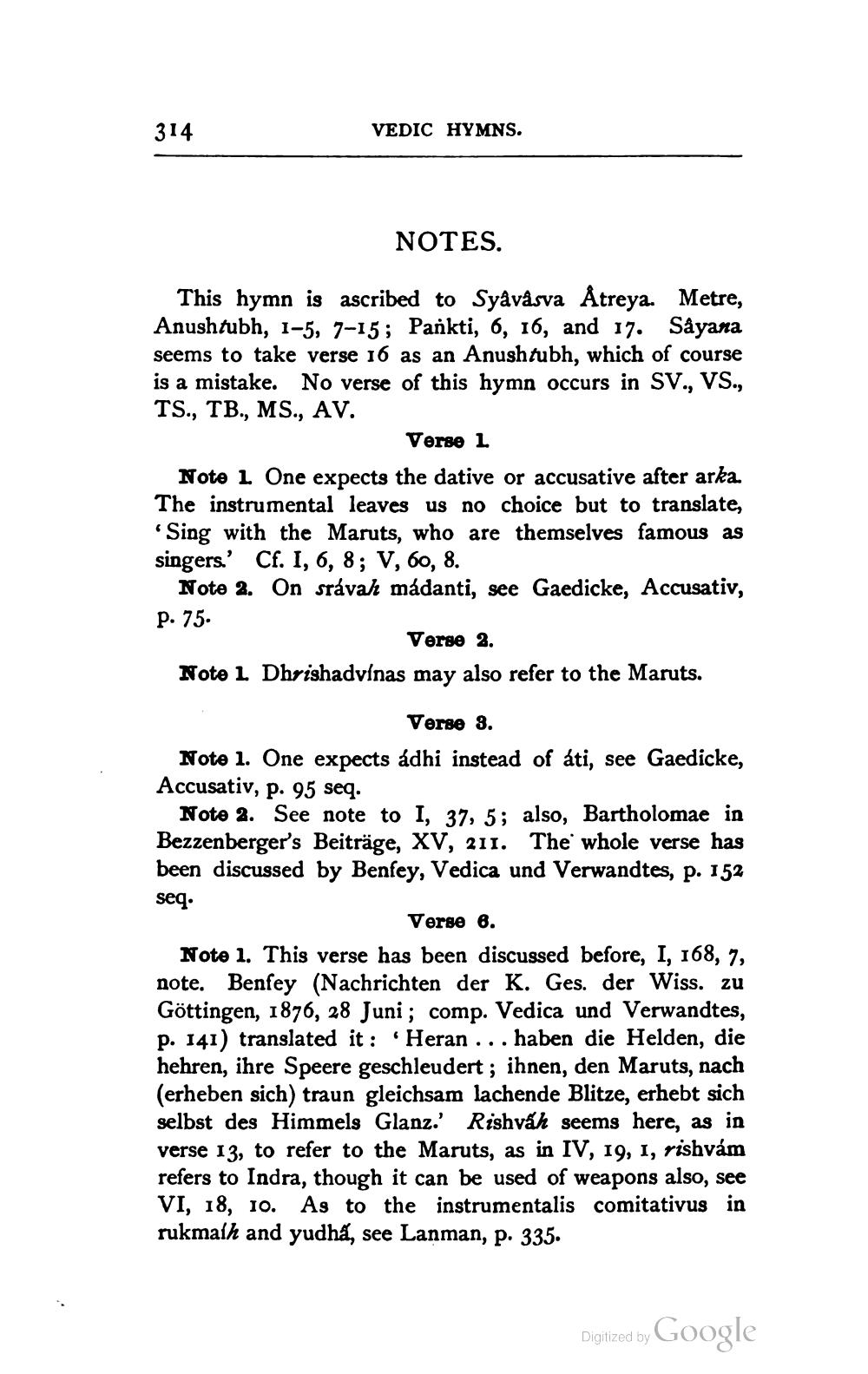________________
314
VEDIC HYMNS.
NOTES.
This hymn is ascribed to Syâvåsva Åtreya. Metre, Anushtubh, 1-5, 7-15; Pankti, 6, 16, and 17. Såyana seems to take verse 16 as an Anushtubh, which of course is a mistake. No verse of this hymn occurs in SV., VS., TS., TB., MS., AV.
Verse 1 Note 1 One expects the dative or accusative after arka. The instrumental leaves us no choice but to translate,
Sing with the Maruts, who are themselves famous as singers.' Cf. I, 6, 8; V, 60, 8.
Note 2. On srávah mádanti, see Gaedicke, Accusativ, p. 75.
Verse 2. Note 1 Dhrishadvinas may also refer to the Maruts.
Verse 3. Note 1. One expects ádhi instead of ati, see Gaedicke, Accusativ, p. 95 seq.
Note 2. See note to I, 37, 5; also, Bartholomae in Bezzenberger's Beiträge, XV, 211. The whole verse has been discussed by Benfey, Vedica und Verwandtes, p. 152 seq.
Verse 6. Note 1. This verse has been discussed before, I, 168, 7, note. Benfey (Nachrichten der K. Ges. der Wiss. zu Göttingen, 1876, 28 Juni; comp. Vedica und Verwandtes, p. 141) translated it : Heran ... haben die Helden, die hehren, ihre Speere geschleudert; ihnen, den Maruts, nach (erheben sich) traun gleichsam lachende Blitze, erhebt sich selbst des Himmels Glanz. Rishváh seems here, as in verse 13, to refer to the Maruts, as in IV, 19, 1, rishvám refers to Indra, though it can be used of weapons also, see VI, 18, 10. As to the instrumentalis comitativus in rukmalh and yudha, see Lanman, p. 335.
Digitized by
Digilzed by Google




